16. A Good Year (2006)
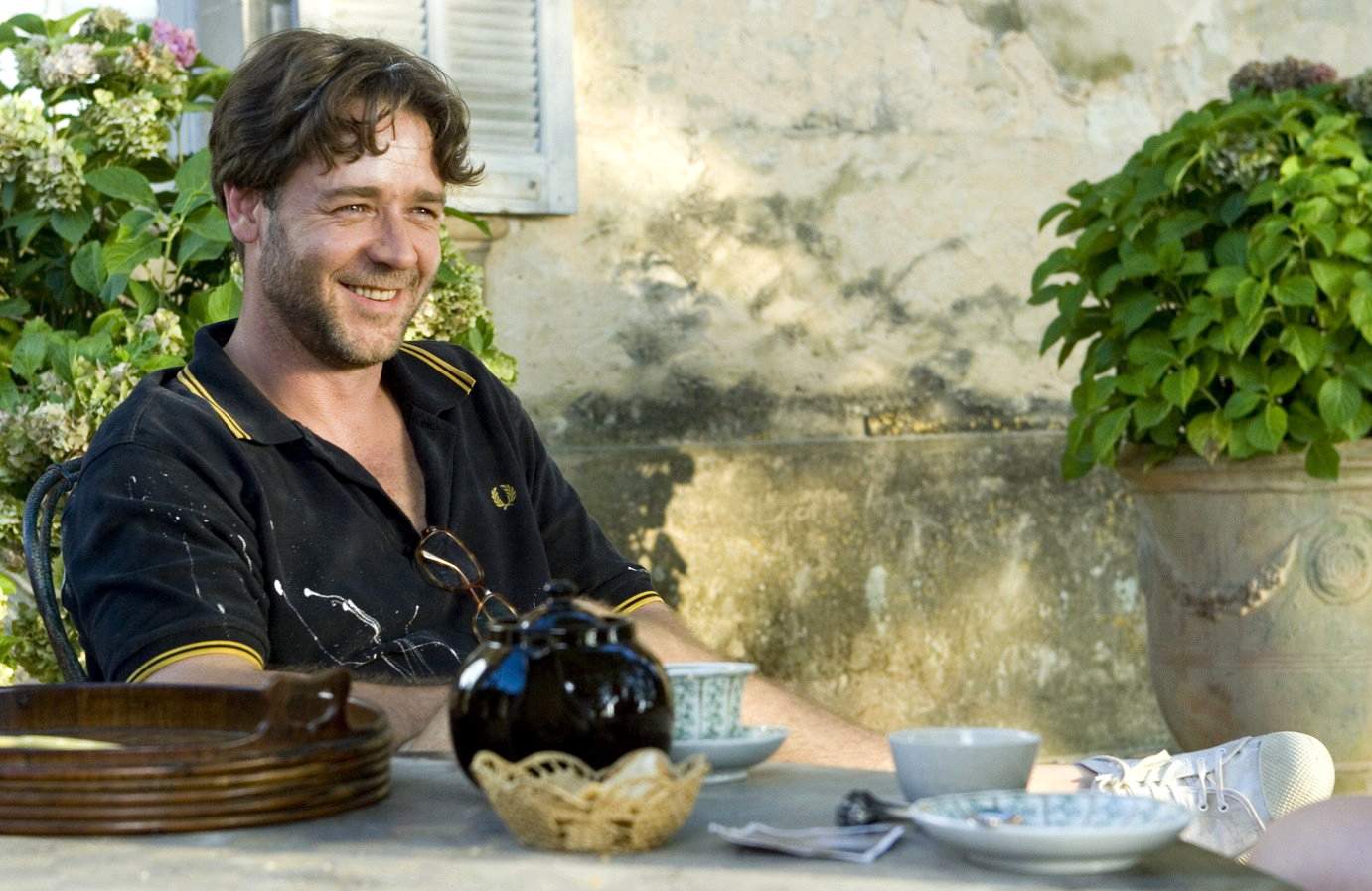
Genre-hopping seems to be a favorite preoccupation of this director, and while he had already covered the genres of crime, war, drama, and (especially) science fiction, up until 2006 he hadn’t yet tackled the romantic comedy. Setting this frothy film in the vineyards of southeastern France, Max (Russell Crowe), once orphaned and left with only his family’s vineyard, has since become an unscrupulous and successful bond trader in London.
Attempting to sell the vineyard and move on with his life, his plans are complicated by a small cafe owner in the small French town the estate is set in and is confronted with a possibly long-lost illegitimate daughter. Can this cynical businessman see past his own material concerns and engage in a potential life filled with meaning that he never knew he wanted? The answer is yes, of course he can: it’s a romantic comedy, after all.
An unexpected turn for Ridley Scott–who seems more comfortable creating fantastic worlds on an epic scale–this smaller picture certainly has its charms and (as usual) looks gorgeous, but there’s very little in it for audiences to grasp onto.
More an excuse to film a lightweight movie set in stunning French locales, A Good Year is enjoyable enough and something to watch with your significant other on a rainy night while sipping on some wine. But like wine, it leaves you feeling slightly warm for a while before fading away completely.
15. Alien: Covenant
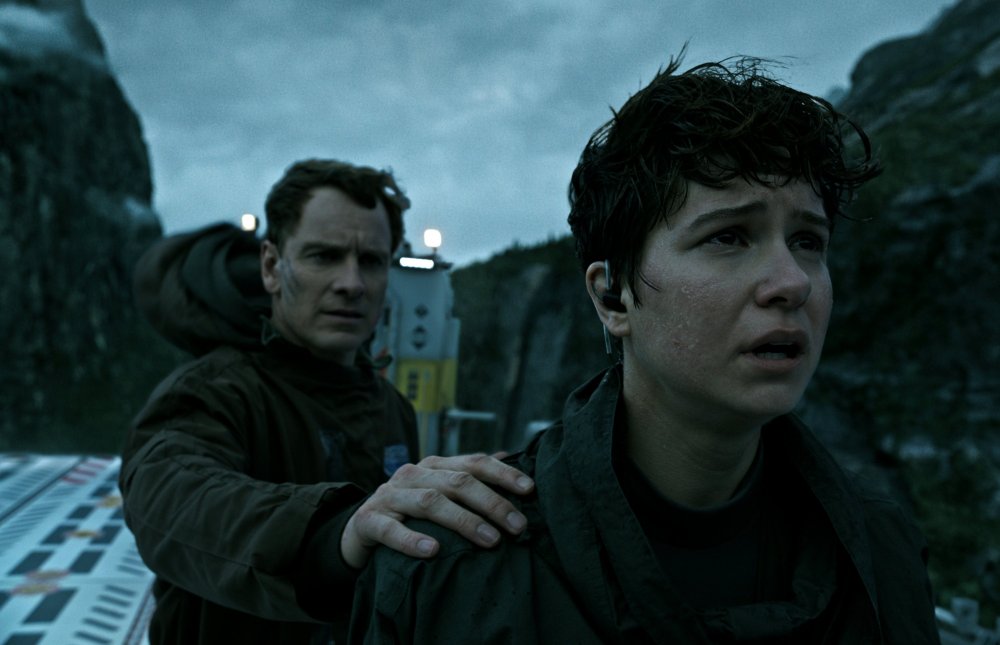
While Prometheus, the much-anticipated prequel to the Alien franchise, found Scott returning to one of his most enduring creations, 2017’s Alien: Covenant was facing even higher expectations. With many audiences assuming Scott would be continuing down the more philosophical path that Prometheus began, instead audiences found themselves watching a survival horror film.
Which should have been a sure-fire hit, particularly with Alien fans. But something strange happened: it seems fans of the franchise kind of didn’t want another survival horror film–they wanted to see a continuation of the first film. And while there were elements that carried over from Prometheus–in particular, the android David–many were unsatisfied when the film turned out to be another by-the-numbers survival horror flick featuring everyone’s favorite Xenomorphs.
This isn’t to say Alien: Covenant was bad–in fact, it should have been exactly what audiences wanted. But audience’s tastes–particularly sci-fi fans when it comes to their favorite franchise–are fickle, and it seems the backlash Prometheus suffered from upon its release had undergone a reconsideration since, so when Scott rejiggered the formula to give audiences what they claimed they want, they actually wanted more of what he provided them in the first place.
14. Matchstick Men (2003)
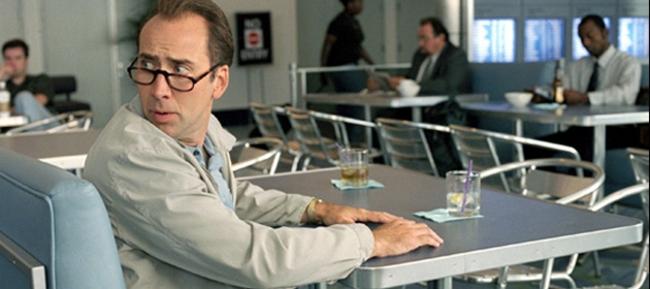
A con man (Nicolas Cage) suffering from tourette’s syndrome and anxiety finds that he has a long-lost daughter from a previous marriage. He gets in contact with her and, as a way of bonding, begins to teach her the tricks of the con man trade. This leads to him involving her in his latest long-con–but it turns out he may have been the mark all along.
With a well-written script with a few twists and turns, Ridley Scott brings his usually epic sensibilities down to earthly concerns, focusing on the lives of a few small-timers and the tricks they pull to get by.
While a fine film in its own right, Cage’s distracting performance seems out of place among a cast of cool and collected con artists, with his character’s affliction of tourette’s syndrome providing perhaps one too many tics for an actor already full of them to pull off seamlessly in an otherwise cool and controlled film.
13. Body of Lies (2008)
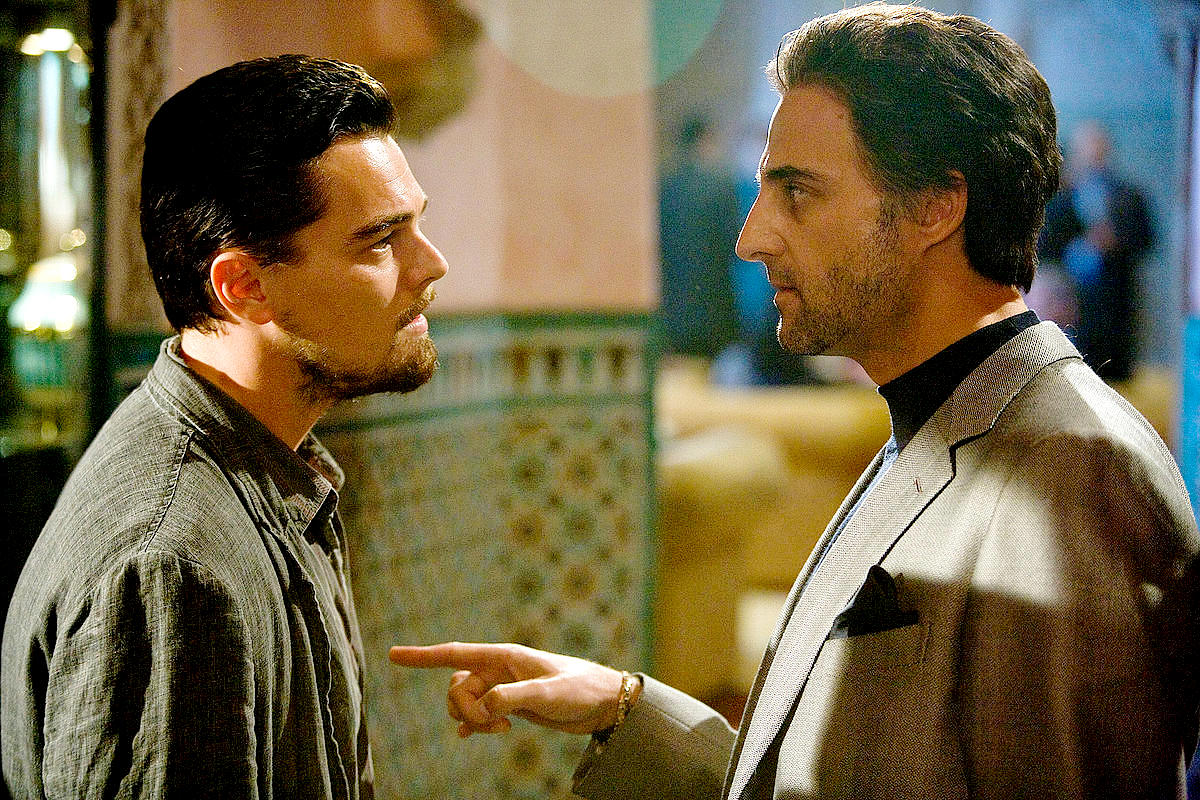
A CIA agent (Leonardo DiCaprio) teams up with a Jordanian intelligence officer to find a terrorist mastermind before further acts of terror can be perpetrated. Intrigue ensues as these organizations investigate–both together and separately–potential leads, as both parties ensure their trust in each other while also keeping their own interests at heart.
Exploring the conflicts between Arab and Western cultures, the film also shows both sides working together, although with very different methods, towards the same goal
Ridley Scott is a talented enough director to make the hoary spy genre interesting enough, and Body of Lies proves that: the film is rarely boring, and as always his visuals are a treat to watch. But he falls into the same problems that many of his lesser films are prone to by relying more on the aesthetics than the story itself.
Although DiCaprio works hard to make his character compelling, as do all of the actors involved, the plot is traditionally trite, becoming both increasingly implausible and conventional (like many spy films do) as it goes on. For a genre picture, Scott as usual turns in an above-average product–but in the context of his own stellar body of work, Body of Lies is average at best.
12. Hannibal (2001)
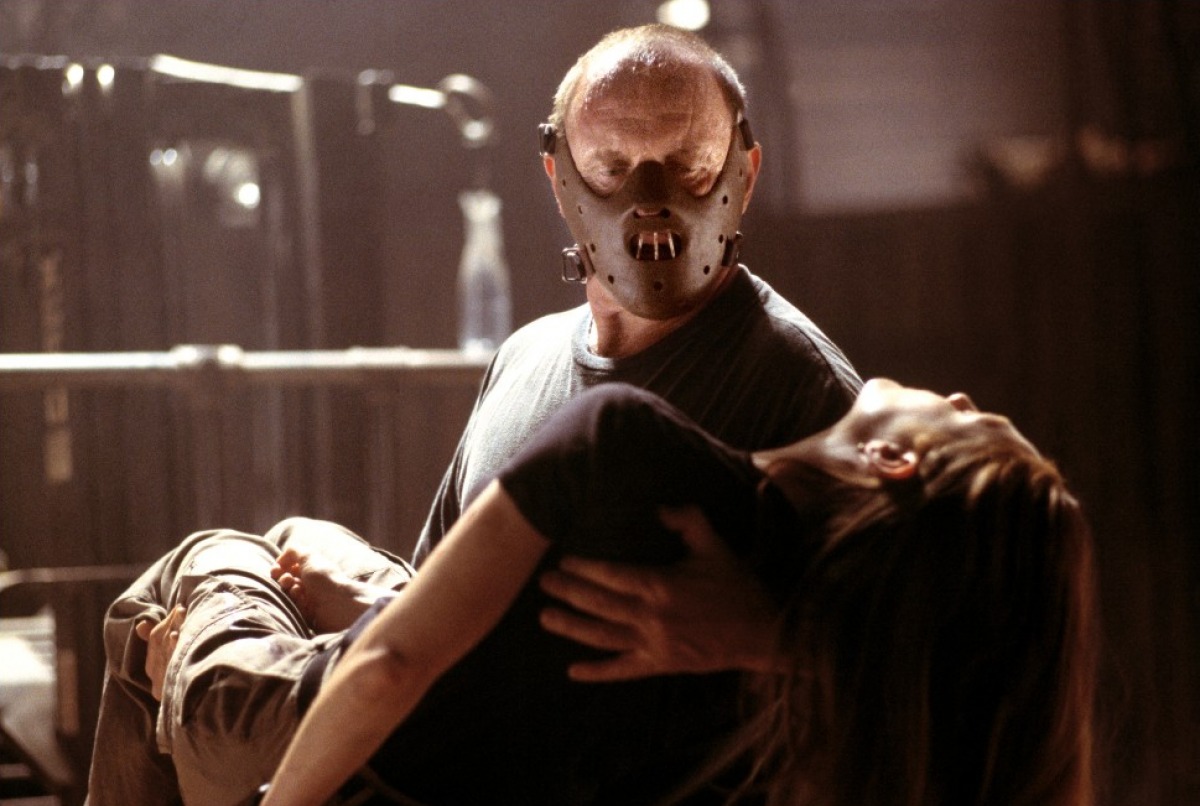
Hannibal Lecter is a character that has captured the popular imagination: from his first appearance in the 1981 thriller novel Red Dragon, to Anthony Hopkins’ Academy Award-winning turn as Lecter in The Silence of the Lambs, to the short-lived TV series centered on the character, Hannibal Lecter has found its place in the pantheon of great characters in the Western canon.
Perhaps it was the character’s enduring popularity that drew Scott to filming the adaptation of the novel Hannibal, in which the erudite cannibal doctor is the protagonist rather than malevolent chaotic neutral that he was portrayed as up to that point. A sequel to Silence of the Lambs, the film portrays FBI agent Clarice Starling (now played by Julianne Moore) having become recently disgraced after a botched drug raid and now being taunted by Lecter.
While investigating a disfigured child molester intent on feeding Lecter (his former psychiatrist) to a pack of wild boars, Starling frees Lecter, only to be kidnapped by him and having a disturbing dinner with him and her abusive superior, who happens to be on the menu that evening.
While a box office smash, Hannibal was criticized for its extreme violence and gruesome visual effects. Scott had inherited the project after Jonathan Demme (the director of Lambs) and Jodie Foster declined to be involved in the project and the script had gone through several revisions.
Critics noted that the film relied more heavily on graphic sequences and shock rather than suspense and atmosphere as the original had. Although far more shallow than Lambs, Hannibal is still an effective film–if for very different reasons.
11. Kingdom of Heaven (2005)
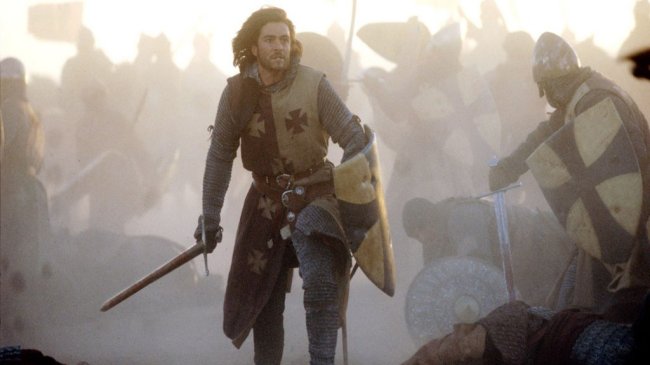
As a historical epic about the Crusades, Kingdom of Heaven finds Ridley Scott working firmly within his wheelhouse: the set design and cinematography are impeccable, the scope is gigantic, and the intricate detail that went into replicating 12th century Europe and Jerusalem is evident in every shot. As a representation of what Ridley Scott can accomplish as a director, there’s few films of his that represent this better than Kingdom of Heaven.
However, as a movie it’s difficult to discern its merits: a crusader named Balian (Orlando Bloom) journeys to Jerusalem seeking redemption, becomes the lover of the princess of Jerusalem while observing the political intrigue that may spark a war between the Christians and Muslims, and upon the beginning of a siege of the city, Balian becomes the protector of Jerusalem.
Opening to mixed reviews, it sunk at the box office, with many academics complaining of the historical inaccuracies of the film. A complex movie whose theatrical release excised much of the story that clarified the relationships between the characters, Scott’s director’s cut has fared better critically. While an impressive film, it’s not an easy-going one, and the viewer may need to take notes and do some research before being able to understand what’s going on.
10. The Duellists (1977)
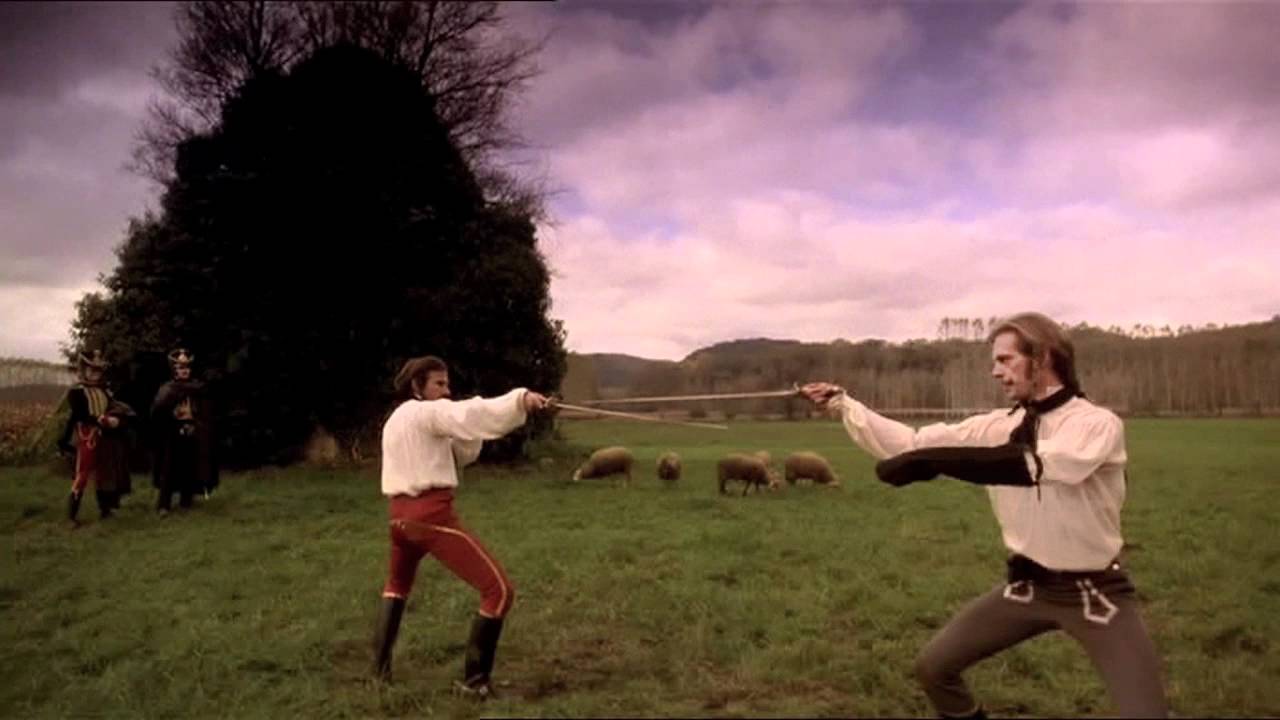
Set during the Napoleonic era, The Duellists follows the lives of a fervent duellist Gabriel Feraud (Harvey Keitel) and his oft-nemesis Armand d’Hubert (Keith Carradine) as they meet for duels by swords throughout their careers as soldiers in Napoleon’s army. While their lives continue after their duels, their paths continually diverge and converge again and the film becomes an exploration of two men and how their personal characters affect each other throughout their lives.
Ridley Scott’s first feature film was an ambitious one, and one that would lay the groundwork for his film career that followed. Meticulous in its historical recreation of early 19th-century France, The Duellists tracks the lives of individuals as the epic forces of history and time march inexorably forward. Compared to Stanley Kubrick’s Barry Lyndon (which Scott noted as an inspiration), it’s a well-made historical drama that’s all the more impressive for being the director’s debut feature film.
9. Prometheus (2012)
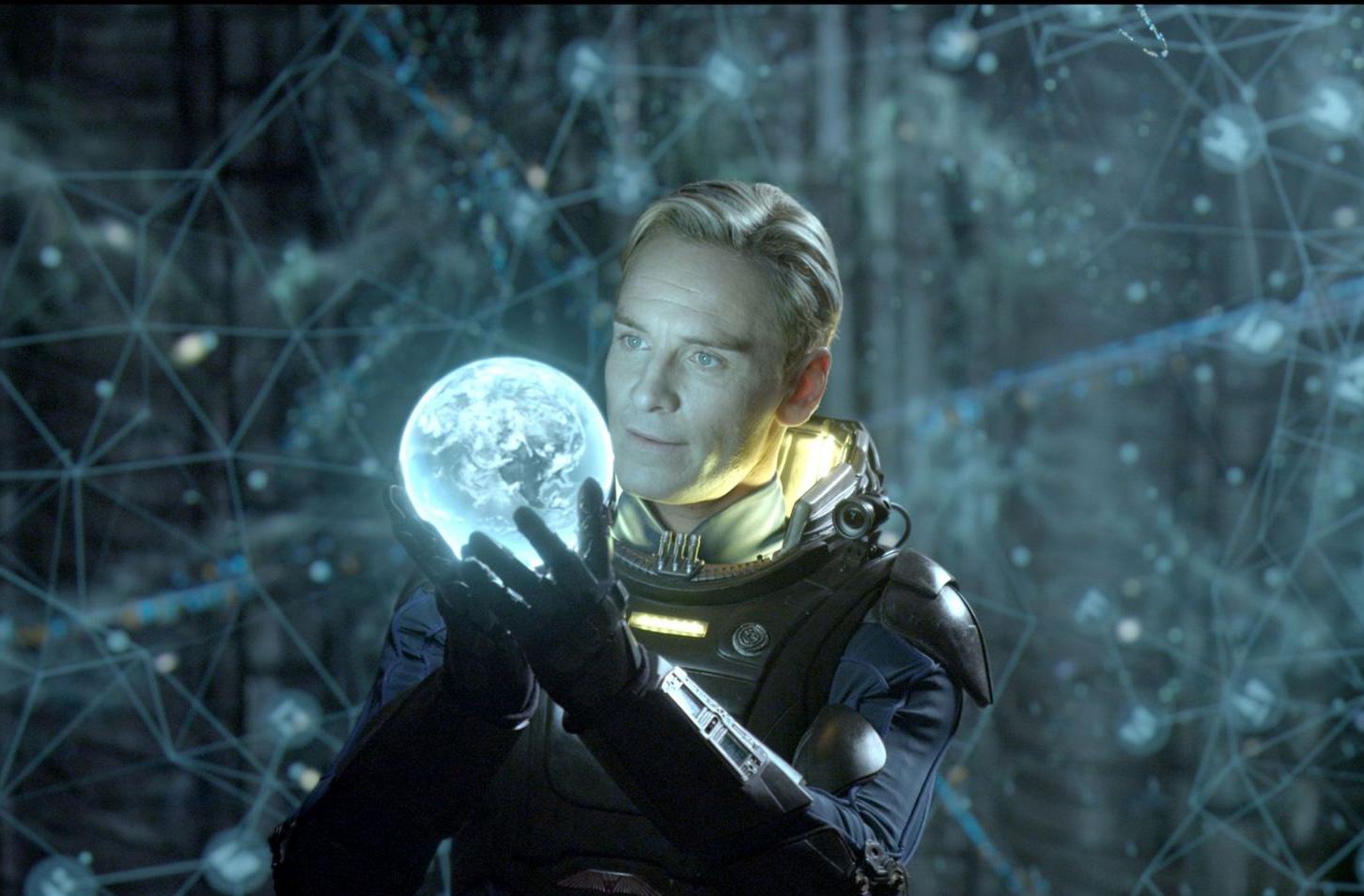
Following a path in the stars that they believe is an invitation from beings that may have created the human race, a research team lands on a distant planet and finds the remnants of alien starship and the giant corpses of these beings, whom they have dubbed “Engineers.”
But after coming across some eggs whose inhabitants latch onto the face of anyone unlucky enough to come near them, which spawn terrifying monsters that are perfect killing machines, the team of researchers have to fight for their lives–and potentially the fate of Earth–before these aliens head back to infest their planet.
A prequel to Ridley Scott’s Alien, Prometheus was a long-anticipated return to the franchise by the director. While a box office hit and its initial critical reception positive, many fans of the Alien franchise complained that it didn’t answer the questions they had but instead posed more dangling threads.
Perhaps with Scott’s upcoming Alien: Covenant this year, some of those questions will be answered, but Prometheus is Scott returning to the franchise he first spawned, and in turn created a visually dazzling, intriguing sci-fi film that acts as both a prequel and a stand-alone film of its own. By returning to science fiction, Scott created yet another memorable entry into the genre.